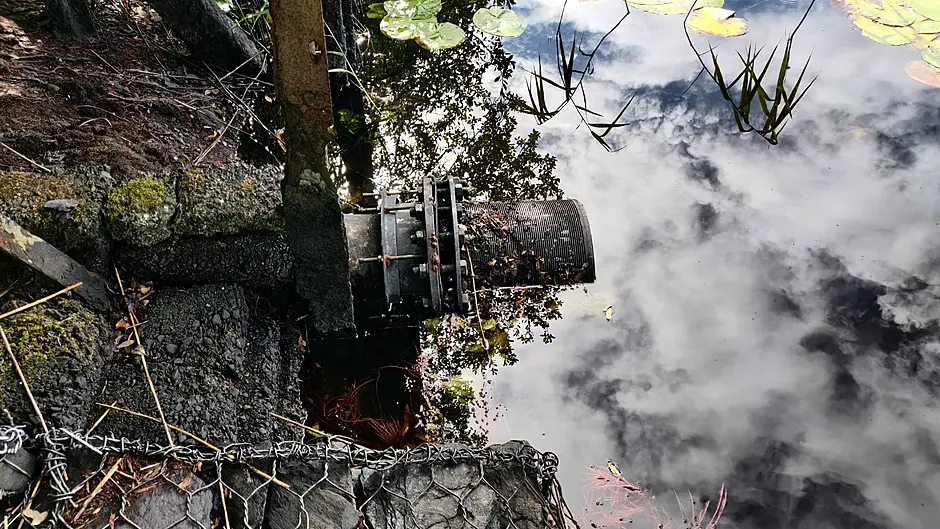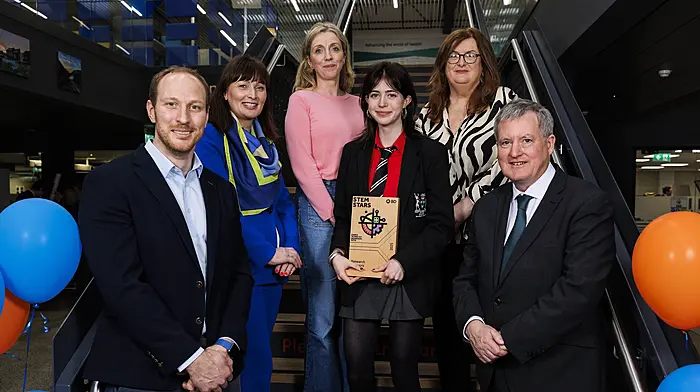AS demand for water continues to outstrip supply in West Cork, one of Irish Water’s most outspoken critics said the company’s failure to address the region’s water supply problems can only be resolved by providing ‘a more centralised, reliable supply.’
For years, Cllr John O’Sullivan (FG) has been warning that Clonakilty’s supply scheme – which supplies Rosscarbery to Timoleague and has a bearing on villages such as Rossmore, Ardfield and Rathbarry – is one of ‘the greatest infrastructure deficits in all of West Cork.’
But below average rainfall throughout West Cork since last November, combined with the recent heatwave, an increase in demand due to the influx of tourists during the summer months, and the seasonal increase in agricultural demand, has created ‘a drought watch’ for 30 water supply schemes from Clonakilty, right across to the Beara Peninsula.
Irish Water has responded by issuing a water conservation order for four weeks.
Margaret Attridge of Irish Water said the conservation order is focused on domestic users and non-essential commercial use, such as watering gardens and paddling pools.
She said it is not intended to impact on businesses in the area, but she confirmed that Irish Water has been in touch with its large commercial users asking them – as well as farming bodies – to conserve water.
A recent investment of €28m in the Ballyhilty water treatment plant just outside Skibbereen – which included 35km of new water mains – was not enough to mitigate the effects of the current climate conditions.
Rainfall levels in West Cork were down an estimated 60%, except for the month of June, but in July that figure dropped to 76%, resulting in just 7mm of rainfall in a two-week period following the heatwave.
Irish Water predicts it will take four to six weeks of ‘normal rainfall’ to replenish the reservoirs.
Met Éireann is, however, forecasting a further spell of dry, warm weather for the next two weeks, and this can only increase pressure on already depleted supplies.
Cork South West TD Holly Cairns said: ‘Our weather will become more unpredictable as a result of climate change which will impact our water supplies. As well as taking our climate action seriously, we need long-term mitigation plans.’
Ms Attridge said Irish Water has been using pressure management techniques to reduce leakage in areas and – in partnership with Cork County Council – is currently tankering water to three reservoirs at Clonakilty, Coppeen and Drinagh.
However, she identified ‘a potential need’ to tanker water to any one of the 30 water schemes currently under ‘drought watch.’
Cllr O’Sullivan, a Timoleague-based dairy farmer who currently provides water for his livestock from his own well, said the reservoir at Ardgehane, which supplies the Seven Heads Peninsula, is being topped up by tanker.
He claimed tankering water to reservoirs is an ‘expensive process which must be undertaken to preserve water supply in the short term but said the money would be much better used to provide long-term solutions.’
He cited the Clonakilty water supply scheme as an example of what is wrong with the system.
He claimed the peak demand for water in Clonakilty is 7.5m litres per day but there are only 5.9m litres available.
He said this ongoing crisis has resulted in hundreds of housing and commercial developments being refused planning permission due to the lack of supply.
He noted that Irish Water has recently appointed Ward & Burke to construct a 14km water interconnector pipe from Bandon’s water supply at Baxter’s Bridge to supplement Clonakilty’s water supply at Jones’ Bridge.
Work on that project is due to start in a matter of weeks. The upgrade at Jones’ Bridge is expected to yield 0.45m litres per day by reducing leaks, while it has been estimated that the 14km pipeline will provide an additional 0.8m litres per day.
Cllr O’Sullivan believes the problem in the greater Clonakilty area can only be resolved if the second phase of that project – a proposed additional pipeline connecting Bandon with the reservoir from the River Lee in Cork city – is finalised.







